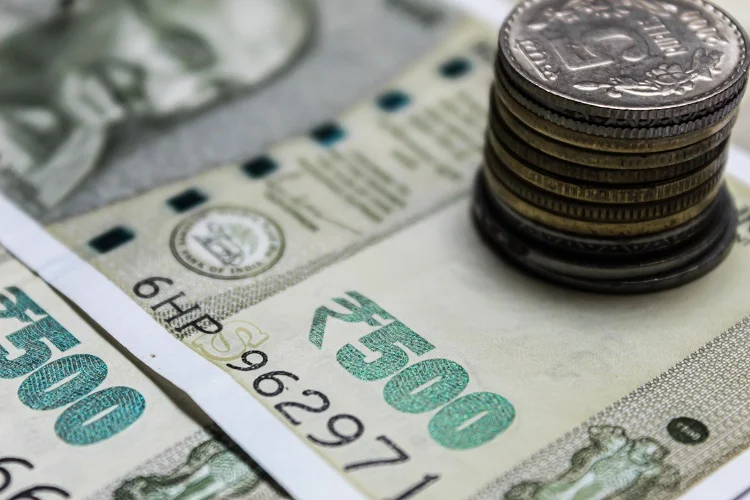Dividend - A Comprehensive Guide to Dividends in the Stock Market - Unlocking Wealth Through Dividend Strategies, Types, and Impact on Investments
In the dynamic realm of the stock market, investors often seek not only capital appreciation but also a steady stream of income. One avenue that fulfills this quest is through dividends. In this article, we will explore the nuances of dividends, shedding light on their significance, types, and the considerations investors should bear in mind.

Dividends in the stock market represent a lucrative avenue for investors to reap financial rewards. Companies share a portion of their profits with shareholders, offering a steady income stream. Whether through cash, stocks, or other assets, dividends enhance investment portfolios, providing stability and signaling a firm's financial health.
What are Dividends?
Defining the Financial Reward: Dividends are a portion of a company's earnings distributed to its shareholders as a reward for their investment. Unlike capital gains, which depend on the market's assessment of a stock's value, dividends provide investors with a tangible return on their investment.
Types of Dividends
Cash Dividends
Cash dividends represent the most common form of dividend payment. In this scenario, companies distribute cash directly to shareholders on a per-share basis. This provides investors with liquidity, allowing them to decide whether to reinvest or utilize the funds elsewhere.
Stock Dividends
Stock dividends, also known as bonus shares, involve the distribution of additional shares instead of cash. While this doesn't impact the overall value of the investment, it increases the number of shares held by the investor, potentially enhancing their position in the company.
Property Dividends
Less common but noteworthy, property dividends involve the distribution of physical assets or other non-monetary assets. These dividends can be challenging for investors to evaluate as their value may fluctuate.
The Significance of Dividends in Investing
Income Generation
One of the primary reasons investors turn to dividend-paying stocks is the consistent income stream they provide. This can be particularly appealing for those seeking a reliable source of funds, such as retirees.
Stability in Volatile Markets
Dividend-paying stocks often exhibit more stability during market downturns. The regular income from dividends can act as a cushion, mitigating the impact of market fluctuations on the overall investment portfolio.
Indicator of Financial Health
A company's ability to pay dividends is often seen as a positive indicator of its financial health. Consistent dividend payments suggest a stable and profitable business model, instilling confidence in investors.
Considerations for Investors
Dividend Yield
The dividend yield, calculated as the annual dividend per share divided by the stock's current price, is a crucial metric for investors. A higher yield may seem attractive, but it's essential to consider the company's financial health and sustainability of dividend payments.
Dividend Payout Ratio
Examining the dividend payout ratio, which compares the dividends paid to the company's earnings, helps assess the sustainability of dividend payments. A lower payout ratio indicates that the company retains more earnings for future growth.
Consistency and Growth
Investors should evaluate a company's historical dividend payments and its potential for future growth. Consistent dividends and a history of increasing payouts can be indicative of a strong investment.
List of Interesting Facts and Real Incidents about Dividends
The Oldest Dividend-Paying Company
One of the longest-standing dividend-paying companies is the Bank of New York Mellon, which has been distributing dividends since 1785, showcasing a remarkable history of consistent shareholder rewards.
Dividends During the Great Depression
Despite the challenging economic conditions of the Great Depression in the 1930s, some companies, such as Procter & Gamble, continued to pay dividends, demonstrating resilience and commitment to shareholders even in tumultuous times.
Microsoft's Dividend Initiation
In 2003, technology giant Microsoft initiated its first-ever dividend payout. This marked a significant shift in strategy, reflecting the company's maturation and a move towards returning value to shareholders.
Indian Stock Market: Dividend Distribution Tax (DDT)
In India, until the financial year 2019-20, companies were subject to Dividend Distribution Tax (DDT). The Indian government abolished DDT, shifting the tax burden to individual shareholders, impacting the taxation dynamics of dividend income.
The Dividend Aristocrats' Club
Dividend Aristocrats are S&P 500 companies that have consistently increased their dividends for at least 25 consecutive years. This elite club includes renowned companies like Coca-Cola, Johnson & Johnson, and 3M, showcasing their unwavering commitment to rewarding shareholders.
Berkshire Hathaway's No-Dividend Policy
Warren Buffett, the legendary investor and CEO of Berkshire Hathaway, is known for his preference for reinvesting profits rather than paying dividends. Berkshire Hathaway, under Buffett's leadership, has maintained a no-dividend policy, emphasizing capital appreciation over immediate income for shareholders.
Apple's Record-Breaking Dividend
In 2012, Apple made headlines by announcing a quarterly dividend of $2.65 per share, making it one of the largest dividend payouts in corporate history. This move was part of Apple's strategy to utilize its substantial cash reserves for shareholder benefit.
Dividends in Crypto
In recent years, there have been discussions about companies exploring the option of paying dividends in cryptocurrencies. This innovative approach could reshape traditional dividend distributions, adding a new dimension to shareholder rewards.
Indian Stock Market: SEBI's Dividend Disbursement Guidelines
The Securities and Exchange Board of India (SEBI) has laid down guidelines for the timely disbursement of dividends to shareholders, ensuring transparency and efficiency in the dividend distribution process within the Indian stock market.
Dividends and Market Volatility
During times of market volatility, dividend-paying stocks often exhibit more stability. Investors seeking a buffer against market fluctuations often turn to dividend stocks for a reliable income stream, highlighting the defensive nature of dividends in an investment portfolio.
Dividends as a Sign of Financial Health
Companies with a consistent history of paying dividends are often viewed as financially healthy. The ability to sustain and increase dividend payments over time is considered a positive indicator, reflecting the company's profitability and stability.
Indian Stock Market: Dividend Trends
In the Indian stock market, companies from various sectors, including information technology, pharmaceuticals, and finance, contribute significantly to the overall dividend trends. Understanding these trends can provide insights into the economic landscape and investment opportunities.
Impact of Economic Reforms on Dividends
Economic reforms in India, such as the introduction of the Goods and Services Tax (GST) and demonetization, have had ripple effects on businesses. Examining how companies navigate these changes and manage dividend distributions can offer valuable insights for investors.
Frequently Asked Questions
FAQ about dividends in stock market.
What is a dividend?
A dividend is a distribution of a portion of a company's earnings to its shareholders, typically in the form of cash, stock, or other assets.
How are dividends paid?
Dividends can be paid in various forms, including cash, additional shares of stock, or other property, depending on the company's policy.
Why do companies pay dividends?
Companies pay dividends to reward shareholders for their investment, attract investors, and demonstrate financial stability and profitability.
Are dividends guaranteed?
No, dividends are not guaranteed. Companies may choose to reduce or eliminate dividends based on financial performance, economic conditions, or strategic priorities.
What is the dividend yield?
The dividend yield is a financial ratio that represents the annual dividend income as a percentage of the current market price per share.
How do I calculate the dividend yield?
Dividend yield is calculated by dividing the annual dividend per share by the current market price per share and multiplying the result by 100.
Are dividends taxed?
Yes, dividends are typically subject to taxation. The tax rate on dividends may vary depending on factors such as the investor's income and the country's tax laws.
Can I reinvest dividends?
Many companies offer dividend reinvestment plans (DRIPs), allowing investors to automatically reinvest their dividends to purchase additional shares.
What is the ex-dividend date?
The ex-dividend date is the date on or after which a buyer of a stock is not entitled to the declared dividend. Investors must own the stock before this date to receive the dividend.
How often are dividends paid?
Dividend payment frequency varies by company. Some companies pay dividends quarterly, while others may distribute them annually or semi-annually.
What is a special dividend?
A special dividend is an extra dividend paid by a company, often as a one-time distribution, usually resulting from exceptional profits, asset sales, or other extraordinary events.
Can a company with negative earnings pay dividends?
Technically, a company can pay dividends with negative earnings, but it is uncommon. It might be a sign of financial instability, and investors should carefully assess the reasons behind such a decision.
How do dividends impact stock prices?
While dividend payments can positively affect a stock's attractiveness, stock prices may also adjust downward on the ex-dividend date to reflect the dividend payout.
Do all stocks pay dividends?
No, not all stocks pay dividends. Some companies, particularly in the technology sector, reinvest earnings for growth rather than distributing them as dividends.
Can preferred stockholders receive dividends before common stockholders?
Yes, preferred stockholders often have priority over common stockholders when it comes to receiving dividends. Dividends on preferred stocks are usually predetermined and disbursed prior to any distributions to common shareholders.
What is a dividend aristocrat?
A dividend aristocrat is a company that has consistently increased its dividends for at least 25 consecutive years, demonstrating a strong commitment to rewarding shareholders.
Can I live off dividends?
Some investors build portfolios specifically designed to generate enough dividend income to cover living expenses, creating a passive income stream.
How do changes in interest rates affect dividends?
Changes in interest rates can impact the attractiveness of dividend-paying stocks. When interest rates rise, fixed-income investments become more appealing, potentially affecting the demand for dividend stocks.
Can dividends be paid in cryptocurrencies?
While uncommon, there have been instances where companies pay dividends in cryptocurrencies. This practice is still evolving and subject to regulatory considerations.
How can I screen for dividend stocks?
Investors can use various financial websites and stock screeners to filter for stocks with specific dividend criteria, such as dividend yield, payout ratio, and dividend growth history.
Conclusion
In the intricate tapestry of stock market investing, dividends emerge as a valuable thread, weaving together income, stability, and financial health. By understanding the various types of dividends and considering key metrics, investors can leverage these financial sweeteners to enhance their portfolios and achieve long-term success.













Post a Comment
0 Comments